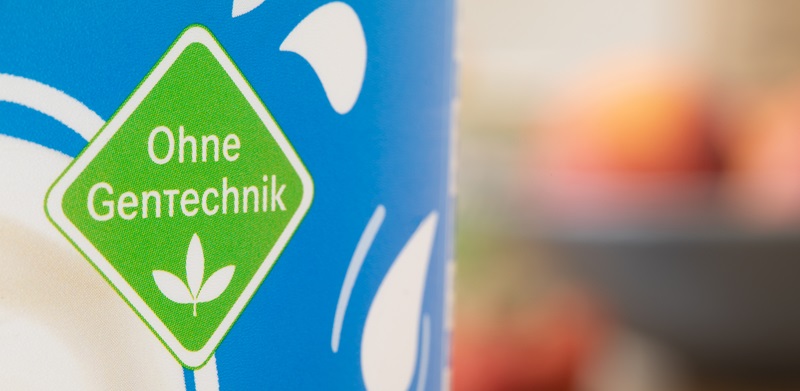News
Greenpeace supermarket check: "Ohne GenTechnik" seal creates transparency
GMO-free feeding for farming method categories 3 and 4
According to Greenpeace, all retail chains surveyed have announced that they will stop producing meat from farming method 1 by 2025, and completely phase out farming methods 1 and 2 by 2030. The criteria defined by food retailers for the labelling of farming systems stipulate GMO-free feeding during the fattening phase for level 3 and 4 pork and beef. However, according to the survey, this should not be labelled; only Lidl promises to label its beef 100 percent "Ohne GenTechnik" by July 2025.
"Ohne GenTechnik" seal ensures transparency
An encouraging result of the Greenpeace survey of retail chains on genetic engineering: The "Ohne GenTechnik" seal is used extensively in food retail to label milk and dairy products, eggs and poultry meat, and to ensure transparency. With regard to the so-called new genomic techniques (NGT), the opinions are more differentiated. Aldi and Rewe/Penny are in favour of a "clearly defined approval procedure, the precautionary principle, and labelling directly on the product". "Kaufland, Lidl and Edeka/Netto, on the other hand, are neither committed to transparency and freedom of choice nor to an authorisation procedure for NGT plants," Greenpeace states.
Edeka and Lidl emphasise trust in science regarding NGT
Aldi Nord and Süd have confirmed their statements from the Greenpeace report to VLOG. Lidl and Kaufland supplement their position in detail in identical statements to VLOG and place the assessment of new genetic engineering in the context of global challenges to food security, climatic extremes, and crop losses, which urgently require new concepts. "In order to assess the extent to which new techniques can be a safe key to solving these complex challenges, we are studying scientific findings. The quality of our products and the protection of consumers is a top priority for Lidl. All products are subject to extensive quality controls along the entire supply chain." Furthermore, Lidl and Kaufland state, "We are closely monitoring the current research and the debate about the new regulation of processes from the so-called ‘new genetic engineering‘ (NGT), as well as the opportunities and challenges. Naturally, we also take society's concerns about GMOs seriously. As a business, we have positioned ourselves for years against the use of conventional genetically modified organisms and contractually exclude their use in our products."
When asked by VLOG, Edeka has explained that it is in favour of "science-based and outcome-open testing of new genetic engineering and legally secure authorisation procedures. In addition, it should be ensured that the EU's legal proposal does not lead to the introduction of patents on genetically modified plants, which could restrict diversity and independence due to the behaviour of individual patent right holders." Edeka also supports the position paper of the National Association of German Food Retailers (BVLH).
Greenpeace Supermarket Check 2024 (German)
Major retailers in favour of clear GMO regulations and stable food prices
Position paper of the German Retailers Association (BVLH) (German)
Foodwatch survey 2023 (German)

